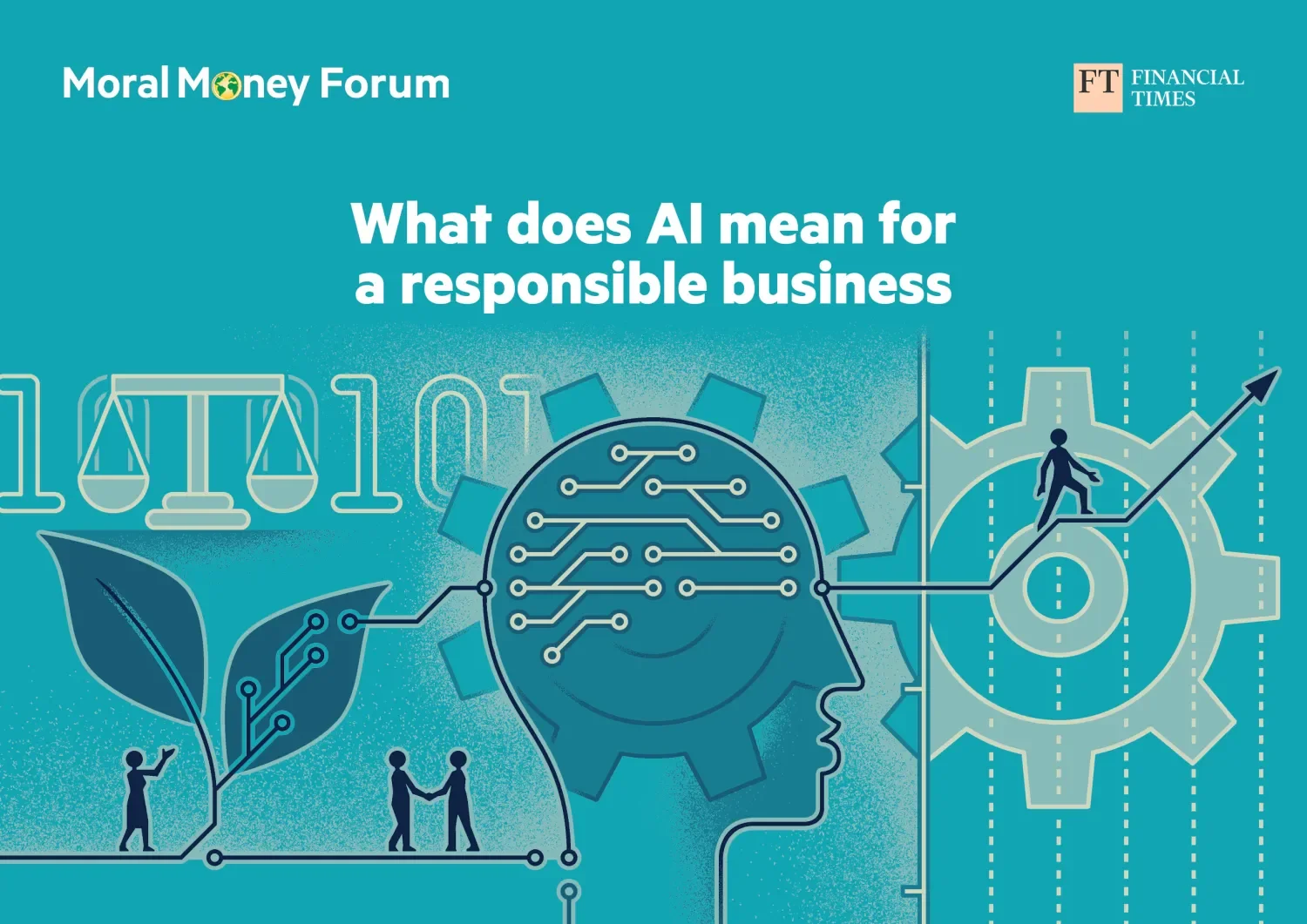AI’s transformative role in asset management and ESG
Asset management
Artificial Intelligence (AI), one of the most hotly discussed and debated topics of late, continues to advance its technology and capabilities, as well as its impact on multiple facets of business and society. It looks set to affect nearly every industry and has the potential to transform society, yet an open question remains: will it be a net positive or negative overall?
While well-documented fears surround AI, its many potential benefits often attract less focus. As with much of technology, whether it’s ultimately advantageous or destructive hinges upon how we manage its emergence and integrate it into our lives.

Encouraging transparency and reducing bias
Introduced carefully – i.e. with an understanding of its potential drawbacks – AI can lead to much greater transparency and the reduction of bias in decision making. As AI systems can inadvertently reflect current human biases, and lead to harmful results known as algorithmic bias, developers, owners, and users need to urgently prioritize both the awareness and mitigation of this risk. Possible measures include establishing responsible processes, the use of technical tools, and operational practices such as internal 'red teams' or third-party audits. Luckily, as awareness of inherent bias and its risks increase, the threat of AI unintentionally reversing progress in crucial areas like workplace diversity lessens.
If AI is to improve transparency and reduce bias, it must be trusted. Demand from regulators and the public for explanations and clarity around data use is growing. Transparent AI relies upon understandable and clean inputs, making it easier for humans to understand and trust AI decisions, and forming the basis for testing and explaining those decisions to stakeholders. At the policy level, both President Biden's Executive Order of October 2023 and the European Parliament’s Artificial Intelligence Act of December 2023 focus on transparent and trustworthy usage of new technology. 1
AI’s contribution to ESG
A marked opportunity exists for AI to play a transformative role in the world of ESG. Again, success depends on how we guide the technology; namely, we must route it towards making a positive difference. An example is the AI-driven development of technology that aim to remove atmospheric greenhouse gases and help mitigate climate risk.2 AI’s integration of resources into climate change predictions can increase accuracy, help measure and monitor emissions, and provide essential data for climate action.3 In addition, smart manufacturing can enable significant reductions in energy consumption, waste and carbon emissions, while AI-based forecasts can improve electrical system efficiency via accurate supply and demand predictions.4
Boston Consulting Group and Google estimate that with the thoughtful guidance of experts, AI could help mitigate 5 to 10 percent of global greenhouse gas emissions by 2030, around 10 to 20 percent of the Intergovernmental Panel on Climate Change’s interim target for achieving net zero by 2050.5 Implemented correctly, we believe AI’s impact on our journey towards increased sustainability includes faster technological experimentation and, therefore, hopefully also faster than expected breakthroughs.
AI’s transformative effect in the investment space
Despite concerns of AI-related workforce reductions in the banking and investment sector, many argue that AI will complement people at work, not replace them. Daren Acemoglu, a professor of Economics at MIT, asserts that when AI and humans work together, they can do better than either would alone.6
As computers get smarter, their potential to automate complex, repetitive tasks – such as trade execution, performance reporting, and compliance monitoring – increases. AI can therefore help identify and implement opportunities for cost savings and operational improvements. This can result in investment professionals having more time for higher-level analysis and strategic decision-making, which is at the core of solid portfolio management. Its potential to process and analyze vast amounts of data at speeds unattainable by humans means AI can enable more sophisticated market analysis, leading to better-informed investment decisions. When it comes to client management, AI can analyze individual client data to provide highly personalized investment advice and recommendations, potentially increasing client satisfaction and retention.
Rather than centering discussion on the potential of a minimized workforce, we should also focus on how these technological advances will reshape our industry and others. The benefits of AI will likely inspire a skill shift: as AI becomes more integrated into the investment management industry, demand will grow for professionals skilled in data science, machine learning, and AI implementation. Nonetheless, similar to the medical field, when dealing with matters of sensitive financial planning and investment, it’s hard to imagine a world in which chatbot interaction would completely replace human interaction.
So, while AI will enhance efficiency and systematics, it’s unlikely to eliminate the human touch in our sector and others. It appears, therefore, that the future we are looking at is one where humans and technology will complement one another. We believe that the careful implementation of AI, with an understanding of its risk landscape, should produce a net positive result for the world of investments and beyond.
1.
https://www.whitehouse.gov/briefing-room/presidential-actions/2023/10/30/executive-order-on-the-safe-secure-and-trustworthy-development-and-use-of-artificial-intelligence/
2.
https://www.gstatic.com/gumdrop/sustainability/accelerating-climate-action-ai.pdf
3.
https://www.bcg.com/publications/2021/ai-to-reduce-carbon-emissions
4.
https://ouci.dntb.gov.ua/en/works/98QDqvj7/#:~:text=Smart%20manufacturing%20can%20reduce%20energy%20consumption%2C%20waste%2C%20and%20carbon%20emissions%20by%2030%E2%80%9350%25%20and%2C%20in%20particular%2C%20can%20reduce%20energy%20consumption%20in%20buildings%20by%2030%E2%80%9350%25
5.
https://web-assets.bcg.com/72/cf/b609ac3d4ac6829bae6fa88b8329/bcg-accelerating-climate-action-with-ai-nov-2023-rev.pdf
6.
https://news.mit.edu/2023/who-will-benefit-ai-machine-usefulness-0929




